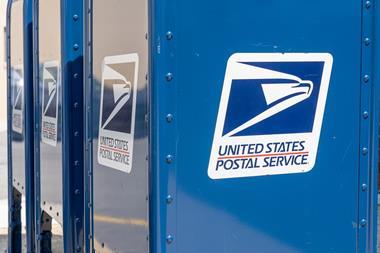
Source: Shutterstock
US Customs and Border Protection (CBP) has unveiled its planned changes to de minimis rules to help ease the administrative burden of dealing with rapidly growing e-commerce volumes and to clamp down on shipments that contain illegal goods.
CBP yesterday announced the proposed changes that would require extra shipment information to be submitted and create a fully electronic process to allow filers to submit data prior to a shipment’s arrival.
The proposals should not come as a surprise as politicians and regulators have in recent years been calling for changes to the de minimis rules that allow shipments worth less than $800 to be imported duty-free and with minimal scrutiny compared with other cargo types.
The proposed Entry of Low-Value Shipments (ELVS) rule was announced in a Notice of Proposed Rulemaking (NPRM), with interested parties given 60 days to respond.
“This data will reduce the burden for CBP officers who process these large volumes of shipments, leading to more accurate targeting,” CBP said. “As a result, CBP resources will be better focused on accurately identifying and interdicting violative shipments.”
On average, CBP processes over 4m de minimis shipments into the US each day, up from around 1.9m per day in 2022.
“The overwhelming volume of low-value shipments and lack of actionable data collected pursuant to current regulations inhibit CBP’s ability to identify and interdict high-risk shipments that may contain illegal drugs such as illicit fentanyl, merchandise that poses a risk to public safety, counterfeit or pirated goods, or other contraband,” CBP said.
“The proposed rule is part of a larger effort to address vulnerabilities and prevent bad actors from exploiting this growing segment of international trade to smuggle dangerous goods into the US.
“It will allow CBP to target high-risk shipments more effectively, including those containing counterfeit goods, synthetic opioids such as fentanyl, or the precursors and pill press parts used to make that deadly drug.
“Additionally, it will revise the current process for entering low-value shipments to require additional data elements that would assist CBP in verifying eligibility for duty- and tax-free entry by creating a fully electronic process for filers to transmit entry data prior to a shipment’s arrival.”
The proposed new process is termed the enhanced entry process.
In order to file an enhanced entry, CBP will require the submission of certain advanced electronic data, including data about the contents, value, origin, and final destination of eligible shipments.
CBP added that the ELVS rulemaking is the first of two NPRMs announced by the Biden-Harris Administration in September 2024.
The second NPRM is expected to be published in the coming days and CBP encouraged congress to move forward with statutory reform to address the surge in de minimis imports that put ”American consumers, workers, retailers, and manufacturers at risk”.
The rapid growth in e-commerce volumes has been a boon for the air cargo industry over the last couple of years, playing a major role in last year’s rapid volume growth.
There are concerns that attempts to stamp down on e-commerce shipments could hit the air cargo market.

















